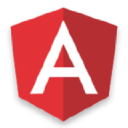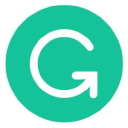
On Building A Network Of 500+ On-Demand Spaces
Hello! Who are you and what business did you start?
My name is Shyam Sundar Nagarajan and I am the Founder & CEO of an India- based On-demand ‘Space’ brand GoFloaters. My CoFounder & COO is Srivatsan Padmanabhan.
We are first of its kind on-demand work, meeting and event space startup in India that helps thousands of early-stage start-ups, freelancers, SMB's, independent professionals, solopreneurs, digital nomads, remote workers, media professionals, YouTubers, mompreneurs, sales and enterprise teams to find affordable plug-and-play work, meeting & event spaces though GoFloaters app – Android & iOS.
Users get to choose the spaces through the app at hourly, daily or monthly pay-as-you-use model without having to worry about contracts, minimum commitments, security deposits, or retainer fees.
2019 has been an incredible year for us - with 5x growth on our customer base, 4x revenue growth and 10x growth on space partnerships.

What's your backstory and how did you come up with the idea?
The story goes back to 2017.
After spending 17 plus years in the corporate world, I moved out to explore my entrepreneurial aspirations. I established an ensure tech startup - SMBSure. I used to have meetings almost every day and traveled across the city. During one such occasion and after spending 1000’s of rupees on work sessions and business rendezvous I realized, what and why is there an impending need to shell out Rs. 400 to 500 over food or beverage to occupy a seat in the café for meetings or to work. This sparked the idea for plug & play workspaces for the floating population- GoFloaters.
There is a large population which needs pocket-friendly and easy to access spaces to work or have networking possibilities at the nearest location of their interest. And it is this experience and realization that gave birth to space brand GoFloaters.
Take us through the process of designing, prototyping, and manufacturing your first product.
As soon as the idea sparked, I took time off my existing start-up, I researched, discussed with fellow entrepreneurs, ex-colleagues (including my co-founder Srivatsan) and began the groundwork.
Once I had a concrete thought and strategy in place, I explored the idea with my mentor, Mr. Sukumar Rajagopalan and said I will launch this in a couple of months. He stopped me right there. A strong proponent of lean start-up thinking, Mr. Sukumar challenged me to validate this start-up idea without spending any money or wasting time. This got me thinking.
Don’t scale too early. Experiment but don’t try to work on tricks rather see the market fit and improve the product.
Step 1: I spoke to three cafes in Chennai and convinced them to be a part of this pilot run. Negotiated a price with them for space and WiFi with no obligation of ordering any food. It was not easy to convince them, but I was able to get them to work with me by saying that this is just a pilot and they can pull out of it any time they wanted.
Step 2: I communicated to my friends, fellow entrepreneurs and others who I had networked with earlier through WhatsApp about the availability of such spaces. I told them if they needed any of the spaces, they could just message me on WhatsApp.
Within two days of sending out the messages, I had a booking for space for a meeting. I sent the prospective users the pictures of the space, the location and the details of the process for booking. If the user liked the space and requested me to block it, I would then call the cafe owner, confirm the booking, send the prospective user the payment link and confirmation of their booking.

Describe the process of launching the business.
In the first few months, it was just my handset, Whatsapp for messaging and a Google Sheet with data on leads, spaces & bookings.
It was just 3 cafes, 15-20 prospective customers to start with. This went on for a month and more, and over the period we designed our website too. This pilot on WhatsApp ran for nearly 2 months and in this period GoFloaters got 40+ bookings.
In this pilot period I collected a lot of feedback, ran some pricing experiments and finally when I was convinced enough that there was a demand, I gradually assembled a team of developers to build the GoFloaters app.
First Features: We started only with cafes on an hourly pay-as-you-go model. We did not have other types of spaces or pricing packages initially.
With GoFloaters we were trying to address the pressing problem for our users to identify drop-in work or meeting spaces that they could use it for a few hours. Based on user feedback and opportunities we included different pricing packages. As the business evolved, we continued to experiment and improve our search, the discovery capabilities of the app.
After the first 10 cafes, we had a huge demand for the meeting rooms. We had individuals who wanted closed, cubicle spaces for the one-on-one meetings, team meeting or some for single-2 seaters for private work time. We also understood that booking professional meeting spaces was a very broken and time taking experience of making calls, checking availability and tracking and responding to emails.
Personally, I knew a couple of start-ups and companies who had unused spaces, seats vacant for a long time. We ran a pilot with known spaces, and it worked in our favor. That’s how we matured to going beyond just Coworking Cafes into Meeting Rooms, Coworking or empty seats in the private offices.
Cut to mid-2018, we had enough data and leads that this would be a very interesting vertical to work on. May-June 2018, we had 5-7 meetings and shared offices on board through our personal and closed networks. Meeting spaces were relatively easier to get a booking, shared office took a lot of time because we had to break the initial inhibitions of ‘shared’ spaces.
Because our model is a ‘light-asset model’, don’t OWN any space, we didn’t have the need to lease or invest in furnishings or building new spaces. As a business, we work on the revenue share model. We don’t charge our partners for listing as of now. We neither take the spaces on rent or lease. Till today, we only curate and onboard fully functional and furnished spaces.
Since launch, what has worked to attract and retain customers?
Addressing the inherent need for spaces to work and meet across a city and the usage of the café spaces without any obligation to order food worked well for us.
Till that time, people who used to sit in cafés for work or meetings have been driven away for staying beyond a certain time or forced to order food or beverage. We brought the change and new way to work which worked.
We are the ‘First and only one’ to bring such a way of working to fruition. The “coolness”, affordability and the flexibility of the model attracted our early customers. We also targeted startup founders as our early customer segment. We grew our customer base in the initial year largely just through word of mouth.
We have been listening to our customers for feedback and inputs. Through this, we found out that our customers also were facing challenges in booking spaces for formal meetings & presentations. This led to us creating our second service offering of meeting spaces to enable our users to book conference rooms, meeting rooms, and training rooms. one such demand lets us create a new vertical of shared offices. These tackle the need for traditional cubicles and private spaces for a longer duration or private meeting purposes or on-demand office spaces at an affordable model. We also added shared offices as a service subsequently based on customer interests.
Don’t get fixated with an idea. Be flexible, don’t get married to an idea without getting to the depths of the problem that you are solving.
An important aspect as to why we are able to retain our customer is the commitment that we have to our community and the engagement we try to keep up with them. Despite being a distributed model, we follow a ‘community’ approach. We ensure that we stay connected and communicate with our users through various channels about the progress, our events, activities and more.
We have 65+ Community Partners who are on board to help users - entrepreneurs, small and medium businesses to grow. We have negotiated with each of the community partners to offer multiple benefits to GoFloaters Community in the form of technical help, consultation, product discounts, value-added services, premium support, training, etc.
As we grew and expanded to newer cities we started to do digital marketing as well. We have invested our resources on SEO, Google Ads & Social Media marketing. We have a sales team to take calls and chats with prospective users. Fortunately, we have also had good PR (Media Relations) through which our unique journey and offer have received recognition and wider reach. We have been covered by Forbes international, many national newspapers (print & digital), online magazines adding credibility.
Influencer Marketing across different social channels -Youtube, Instagram, Facebook, etc- has also played a key role in creating the overall awareness about the segment, the brand and the on-demand concept to the communities and individuals we want to serve. This has also helped us in creating leads at the top of the funnel leads who love to explore us.
How are you doing today and what does the future look like?
Currently, we are bootstrapped.
We are spread across four cities in India -Chennai, Bengaluru, Coimbatore, and Hyderabad- with over 500+ spaces each of which is unique and different catering to different needs of communities and individuals ranging from coworking spots to community engagement events to training sessions in an affordable model.
The future looks interesting, intriguing and promising at the same time for us. As we introduce this new way of working into the world and into the cities we currently are in we are seeing that what we thought was easy is not easy.
Earlier, we thought the value proposition itself is going to be our selling point and people will flock to our mobile app and start using our spaces. But over the period, we realized that creating awareness takes a longer time than expected and creating the right brand image and value takes time, especially in this category. So, this has been intriguing and spreading the word about the brand and the journey is still on! We are focusing a lot on innovative ways and means to create awareness about our offering and ‘Space as a Service’ model.
It is interesting because we are seeing how different communities and individuals are using our spaces in different cities and locations. It ranges from a healthcare professional using our spaces for consultation purposes with easy and convenient access across the city to students and competitive exam participants using our spaces for weeks as their study zone to game development teams collaborating to creative individuals like songwriters, scriptwriters or authors and production teams using our spots that suit their mood and work to get the right vibes for better outcomes. So, this has put us in a very interesting spot, so we cannot bracket ourselves in the usual cookie-cutter format and say, one size fits all and take that approach.
From a future point of view, this is a very promising way we are looking to address the unserved and underserved populations of the independent, freelancing, remote workforce.
Such space issues are not unique to India, but a global problem. Lack of spaces for the short-term usages without any obligations or lock-up period at affordable rates is widespread. This scenario has only encouraged us to look beyond territories with the concept of on-demand spaces.
We also believe that the future of work is getting increasingly adopted across cities and countries, the world is moving toward #gigeconomy, the market size is expanding to changing the way people work or go to work today. And so, the future for GoFloaters, the on-demand space brand looks promising too.

Through starting the business, have you learned anything particularly helpful or advantageous?
From a business perspective:
One thing that I have personally learned and had my team learn it early as well is ‘Staying close to customers, staying close to the ground’. At GoFloaters, things are different, here the user is the king, queen, jack and we need to remain close to them.
As a business, we have been agile and nimble to customer requirements and demands. We continue to experiment in pricing, product development, and experience of the app and features.
For example, we were quick to sense and utilize the opportunity for ‘shared’ office spaces. It could also be response time to the customer teams, active participation with communities, ecosystem partners to create a cohesive environment.
We make it a point to interact with our users and appraise them on the developments and convert their feedback into serious actions. The big learning is having been a corporate leader and coming from a non-business background, building the start-up has been a great learning and enriching journey.
Another important learning, solving the problem through sustainable and collaborative efforts with the users and our partners across the spectrum.
From a Founder’s perspective:
From the business point of view, we promote flexibility and work-life balance, it would be unfair to not let our team be a part of it.
What began as an experiment, am proud to say, today we are 100% remote employee’s start-up from Day 1. We are as distributed as our business is. We are a 22-member team, spread across 7 plus Indian cities and 2 plus international locations.
A lot of focus has been drawn towards work culture to create the right, positive and meaningful work environment.
We are a 100% remote start-up.
Here are some of the examples of our work culture and yes, we love the way we work, creating a new way to work:
Culture: Our culture starts to showcase since the time of the interview process. We give the candidates an opportunity to present THEIR thoughts, THEIR feedback on us and HOW WE COULD improve in the process. This way we get to judge the passion and drive to achieve at GoFloaters together.
Even the internal thought process is an ‘open discussion policy’. We don’t curtail anyone from having an open, honest and transparent discussion – Be it with the founders or teams spread across.
Video Sessions: Our daily lives have changed, so there is no harm in changing the way we have been working since the industrial revolution. A lot of time is spent on team interactions and video discussions.
Sometimes, post serious work talks, we have ‘fun jigs’ that encourage team interaction and laughter times. This also helps us increase our bond.
Leave Policy: ‘One size doesn’t fit all’. We don’t have a defined holiday calendar. Employees are encouraged to create a good balance work-personal life break be it during National Holidays or Personal Leaves
Task: We use various tools to keep track of tasks and accomplishments. We manage the work with daily, weekly and monthly calls in alternatives. We swear by Slack, Zoom, and Asana all day, all work.
City Meet-ups: Occasionally, we also encourage city-wise team members to the group for work and casual dinners. This way it further bonds the tele-interactions and improving the work goals
Our team is 75% women-powered, in verticals ranging from development to marketing. We recently celebrated our 2nd year anniversary and it was such an overwhelming occasion to know, how much of change we have been able to bring to the lives of people and letting them nurture their dreams and passion from homes or from any of our cafes in the far and wide cities.
We are connected through various apps and remote tools including Slack, Asana, Zoom, etc that helps stay connected and deliver the results.
What platform/tools do you use for your business?
Choosing the right tools for the business becomes a critical point for any start-up.
Fortunately, we have a whole lot of suites that are available to kick-off to a great start.
On the platform side, our tech is hosted on Google. We are end-to-end a Google shop – backend, database, a mobile app, etc
For orchestration and business processes we use the Zoho One Business Suite. CRM, digital marketing, chat, analytics, accounting are all on Zoho
RazorPay as our payment gateway
Other SaaS services that we use are:
We leverage the below platforms for our recruitment
Obviously, we use almost all the social media platforms to create, communicate and engage.
What have been the most influential books, podcasts, or other resources?
Entrepreneurship is very very complex yet inspiring. To be a founder, to be a co-founder and to be able to execute, come out of trenches is quite a challenge.
Reading and knowledge gaining are absolutely essential for an entrepreneur. There are so much information and learning available at our ease today. These have helped us change our perspective and create a benchmark
Both I and Srivatsan are such voracious readers and have a huge appetite for great content.
Some of the books I swear by are:
- Blitzscaling, by Reid Hoffman and Chris Yeh
- Purple Cow: Transform Your Business by Being Remarkable by Seth Godin
- The Lean Startup by Eric Ries
- Zero to One by Peter Theil
Podcast: Startups School from Y Combinator, The Pitch, Marketing School
In addition, we consume an endless list of TEDx Videos, audiobooks, blogs, etc, dailies and subscriptions that help us learn and widen our thoughts.
We love knowledge sharing, and as an effort to encourage a lot more of that, we launched the GoSeeK Talk series where we interview and interact with startup founders & entrepreneurs and publish these conversations. Season 1 has been a good start, we are working on getting more and more such thrilling opportunities
For more:
I also want to take this moment and like to attribute this great journey to my mentors and advisors who have been our pillar of strength from day 1. I owe it to them to have streamlined and influenced my thoughts on this journey.
Advice for other entrepreneurs who want to get started or are just starting?
I am still a novice at entrepreneurship but from whatever I have learned in the past couple of years, here is my advice.
Entrepreneurs who have just started the journey it is first and foremost to Not Get Fixated With An Idea. Be flexible, don’t get married to the idea without getting to the depths of the problem that you are solving.
Networking, unlearning and learning new stuff by interacting with the target audience and ecosystem partners is very critical. Meet new people, attend as many events as possible around the subject, problem, and circuit at your end.
Entrepreneurship is extremely complicated – it is an art and science. Try and find people and resources who share the same passion and drive towards the target. Synergies matter a lot.
Stay focussed, Stay Strong, don't spread things too thin. Stick to the core rather than expanding early. Don’t scale too early. Experiment but don’t try to work on tricks rather see the market fit and improve the product.
And the last piece of advice, ‘Not without your family’. Focus on the success of your goal, but don’t forget and leave behind those important people in your life. Strike the right balance.
Are you looking to hire for certain positions right now?
We are looking for passionate professionals who would help us lead to growth and expand our markets. The opportunities vary from marketing to operations internships. Interested candidates can mail at [email protected].
Where can we go to learn more?
If you have any questions or comments, drop a comment below!

Download the report and join our email newsletter packed with business ideas and money-making opportunities, backed by real-life case studies.

Download the report and join our email newsletter packed with business ideas and money-making opportunities, backed by real-life case studies.

Download the report and join our email newsletter packed with business ideas and money-making opportunities, backed by real-life case studies.

Download the report and join our email newsletter packed with business ideas and money-making opportunities, backed by real-life case studies.

Download the report and join our email newsletter packed with business ideas and money-making opportunities, backed by real-life case studies.

Download the report and join our email newsletter packed with business ideas and money-making opportunities, backed by real-life case studies.

Download the report and join our email newsletter packed with business ideas and money-making opportunities, backed by real-life case studies.

Download the report and join our email newsletter packed with business ideas and money-making opportunities, backed by real-life case studies.




































